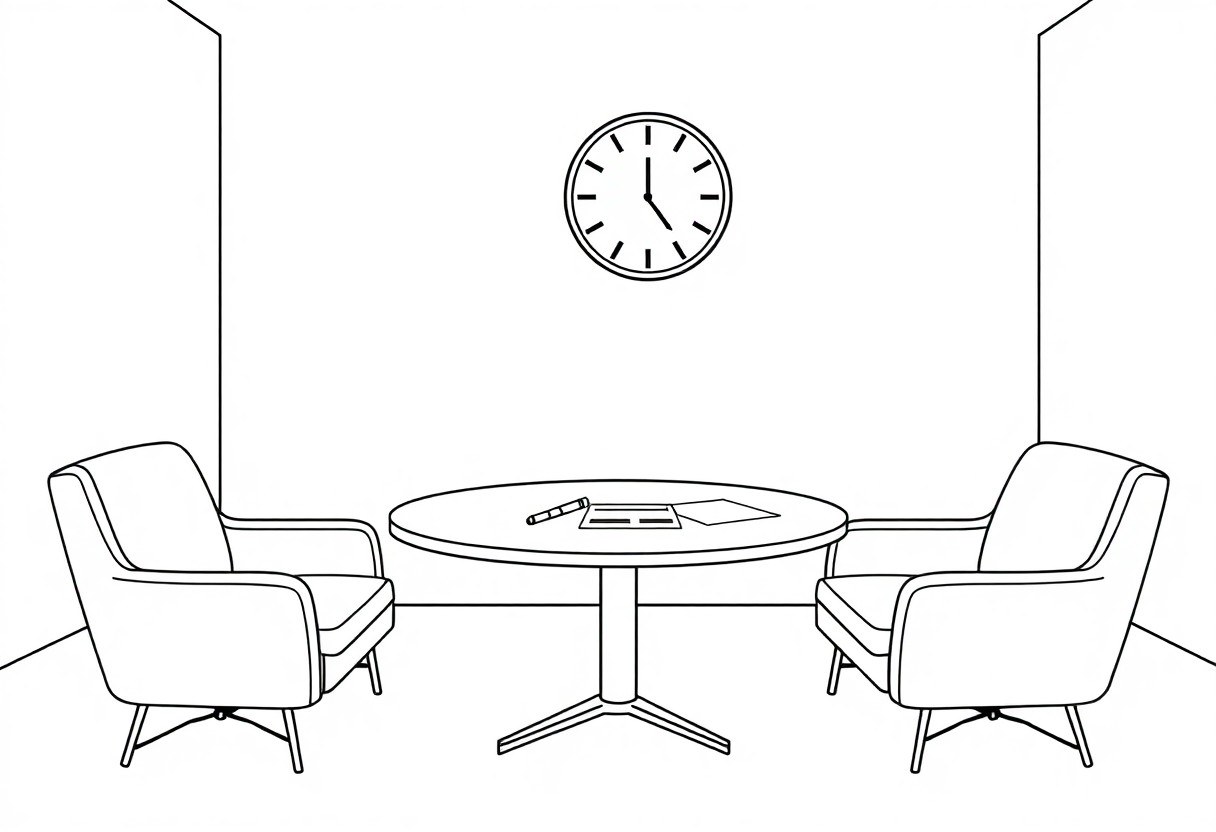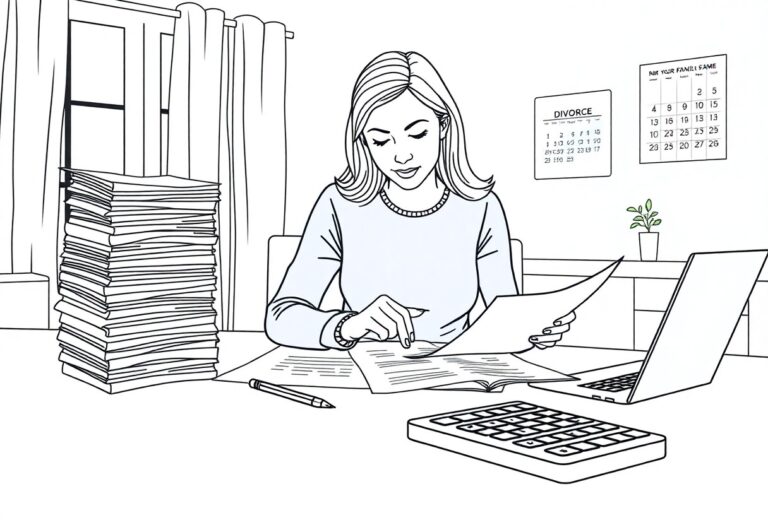How to Prepare for Your First Divorce Mediation Session
Preparation is key when attending your first divorce mediation session. Understanding the process and knowing what to expect can help you feel more confident and at ease. In this post, you will learn valuable strategies to effectively prepare for mediation, including how to gather necessary documents, set clear objectives, and maintain a constructive mindset. By being well-prepared, you can navigate your session with clarity and purpose, ultimately facilitating a smoother resolution to your divorce proceedings.

Clarifying Your Goals and Needs
Understanding your goals and needs is fundamental during divorce mediation. Clearly outlining what you wish to achieve will guide discussions and help you stay focused throughout the process. Whether your priorities lie in financial security, child custody arrangements, or maintaining a relationship post-divorce, having a precise picture of your objectives allows you to navigate negotiations effectively.
Identifying Key Priorities
Begin by listing your most important priorities, which may include factors such as housing, financial support, and time with your children. Consider what matters most to you and how these elements impact your future. By identifying these key priorities early on, you can approach mediation with a clearer sense of purpose and direction.
Establishing Clear Expectations
Establishing clear expectations will lay a solid foundation for your mediation sessions. Consider the possible outcomes you desire and the compromises you may be willing to accept. Openly communicating these expectations with your mediator can foster a productive atmosphere, making it easier for all parties to engage honestly and work towards a fair resolution.
An effective way to establish clear expectations is to draft a list of potential scenarios and outcomes. For instance, if you’re negotiating child custody, specify your desired living arrangements, visitation schedules, and any support roles you envision post-divorce. Sharing this list with your mediator encourages clarity and helps to preempt misunderstandings during negotiations. Taking this step can ultimately save time and foster a more constructive dialogue with your soon-to-be ex-spouse, allowing you both to explore solutions that honour your expectations.
Gathering Essential Documents and Information
Preparing for your mediation session involves gathering key documents and information that will support your case. Organising these materials beforehand not only demonstrates your commitment to the process but also ensures that you have all necessary evidence at hand to facilitate discussions. This preparation can significantly impact the effectiveness of your mediation, clearly outlining your financial position and priorities.
Financial Records You Must Prepare
Compile all relevant financial records, including bank statements, tax returns, pay slips, and investment portfolios. These documents will provide a transparent view of your financial situation, which is necessary for discussions about asset division and support arrangements. Aim to have at least three years’ worth of financial statements to give a comprehensive overview of your circumstances.
Important Legal Documents to Collect
Gathering necessary legal documents enhances your readiness for mediation. Key papers include your marriage certificate, pre-nuptial agreements, property deeds, and any existing custody or support orders impacting your case. Having these documents organised will help clarify your legal standing and can facilitate a more efficient negotiation process.
Focusing on legal documents, ensure you locate your marriage certificate as it confirms the validity of your union. If applicable, find any pre-nuptial or post-nuptial agreements that outline asset distribution prior to marriage or during. Also, keep in mind property deeds that establish ownership rights and any custody arrangements or court orders already in place. Being well-prepared with these documents can smooth the mediation process and aid in establishing a fair resolution.
Understanding the Mediation Process
The mediation process serves as a collaborative platform where both parties can discuss and negotiate their differences with the guidance of a neutral mediator. This informal setting promotes open communication, allowing you to express your concerns and priorities while working towards mutually acceptable solutions. Unlike a courtroom, mediation focuses on problem-solving rather than determining who is right or wrong, making it a more amicable and efficient approach to resolving disputes.
What to Expect During Mediation
Key Roles and Responsibilities
Cultivating an Open Mindset for Negotiation
Entering mediation with an open mindset can significantly influence the outcome of your discussions. Embracing flexibility allows you to consider creative solutions you may not have initially thought possible. Attuning yourself to the perspectives and emotions of the other party enhances understanding, making it easier to find common ground. Being willing to listen and adapt can lead to more productive conversations, turning potential conflicts into opportunities for resolution.
The Power of Compromise
Compromise is crucial in mediation, allowing both parties to feel they have achieved something. By recognising that you may need to give up certain demands, you create room for your spouse to reciprocate. This mutual concession often leads to more satisfactory outcomes, ensuring both parties walk away feeling respected and heard. Your willingness to find a middle ground demonstrates your commitment to resolving the situation amicably.
Strategies for Effective Communication
Effective communication during mediation hinges on clarity, empathy, and active listening. Strive to articulate your feelings and needs clearly while remaining attentive to your partner’s statements. Staying calm and avoiding inflammatory language promotes a more constructive atmosphere. Consider using “I” statements to express your perspectives without casting blame, helping to minimise defensive reactions. Body language also plays a significant role; maintaining eye contact and an open posture fosters trust and respect.
In addition, employing reflective listening techniques can enhance understanding during your discussions. This involves summarising or paraphrasing what your partner has said to ensure accurate comprehension, followed by acknowledging their feelings. Doing so not only shows your attentiveness but also encourages a spirit of collaboration. By utilising these strategies, you create a more amicable environment, making it easier to navigate sensitive topics and reach meaningful agreements throughout the mediation process.
Preparing Emotionally for the Session
Entering a mediation session requires a solid emotional foundation. You may experience an array of feelings, from anger to sadness, as the prospect of divorce often brings up painful memories and future uncertainties. Taking time for self-reflection can help you clarify your emotions and priorities. Engage in mindful practices, such as journaling or meditation, to better understand your thoughts and feelings, thus enabling you to approach the mediation with a clearer mindset.
Managing Stress and Anxiety
Finding healthy ways to manage stress is imperative before your mediation session. Techniques such as deep breathing, exercise, or even yoga can ease anxiety and promote a sense of calm. Setting aside quiet time for yourself in the days leading up to the session allows you to process your emotions and formulate your thoughts without pressure. A balanced lifestyle, including adequate sleep and nutrition, also plays a key role in reducing stress during this challenging time.
Seeking Support and Guidance
Connecting with trusted friends or family members provides invaluable support during this experience. Their reassurance and understanding can make a significant difference in how you feel about the mediation process. Additionally, seeking the guidance of a therapist or a support group can offer you specialised insights tailored to your unique situation, equipping you with coping strategies to navigate your emotions effectively.
Discussing your feelings and concerns with a therapist can help you develop a more constructive mindset going into mediation. Many individuals find that talking through their thoughts allows for greater clarity and lessens the weight of the emotional burden. You might also consider attending workshops or seminars designed for individuals going through divorce; these resources not only provide support but also a sense of community, helping you realise that you’re not alone in this journey.
Summing up
To wrap up, preparing for your first divorce mediation session involves understanding the process, establishing your goals, and gathering relevant documents. You should also consider potential compromises, practice effective communication techniques, and maintain a calm and respectful attitude. Engaging with a qualified mediator can help facilitate discussions, ensuring that your interests are voiced and considered. By taking these steps, you position yourself for a more productive and constructive mediation experience, ultimately paving the way towards a fair resolution.







